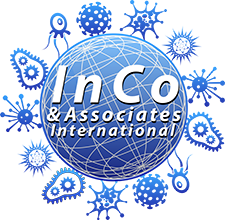CDC Receives Designated as PAHO/WHO Collaborating Centre for Biosafety

Safe and effective laboratories are a key line of defense in protecting the health, safety and security of Americans and U.S. interests worldwide. The Pan American Health Organization/World Health Organization (PAHO/WHO) has designated the Centers for Disease Control and Prevention’s (CDC) Center for Global Health as a PAHO/WHO Collaborating Centre for Biosafety and Biosecurity under WHO’s reference number USA-448.
The designation, effective for four years, is the first awarded to a CDC/WHO collaborating centre that draws upon knowledge and participation from agency-wide biosafety and biosecurity experts to assist PAHO/WHO in their efforts to help countries safely handle and contain dangerous diseases, such as Ebola, influenza and polio.
CDC has decades of experience partnering with countries to build global capacity for biosafety and biosecurity. For example:
- In 2012, CDC worked with Thailand’s National Institutes of Health and Animal Health to establish a certification training program for operation of biological safety cabinets (BSCs). The training program was expanded to Cambodia in 2013. By the end of 2018, CDC supported six certifiers in the region who have performed more than 500 BSC certifications in 65 laboratories and trained over 600 laboratory staff and students on BSC certification and maintenance.
- A continent away, the Uganda Virus Research Institute (UVRI) was certified to perform yellow fever regional reference laboratory functions following a 2017 assessment by WHO and CDC, making UVRI the only certified yellow fever reference laboratory in eastern Africa. In addition, with CDC assistance, the national -reference laboratory supports surveillance for viral hemorrhagic fevers, allowing UVRI to detect and confirm recent outbreaks, including recent travel-related cases of Ebola, and reduce response times from a previous high of 30 days to under two days.
“Global laboratories provide data to drive public health action, inform programs, increase our knowledge base and support solutions to global health problems,” says Dr. Kevin Karem, Associate Director for Laboratory Science, CDC’s Center for Global Health. “In a world that is increasingly interconnected, our ability to prevent, identify, contain and respond to biological threats—whether intentional or naturally occurring—is imperative to protect health and save lives.”
As a Biosafety and Biosecurity Collaborating Centre, CDC will:
- provide global leadership to aid in the development of international recommendations and guidance for laboratory biosafety and biological risk management;
- support PAHO/WHO to use state-of-the-art training and technological innovations in laboratory science to fill knowledge gaps and address fundamental issues affecting safe laboratory operations; and
- continue to work to improve biosafety and biosecurity around the globe.
Learn more about how CDC laboratories protect Americans, as well as CDC’s global efforts to strengthen laboratory systems and close dangerous gaps in the world’s ability to contain infectious agents and prevent, detect and respond to disease threats.
